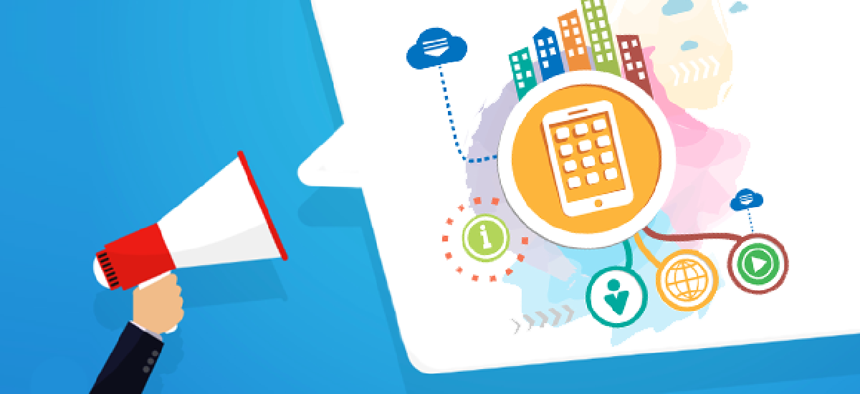The connected city: Don’t forget to tell the citizen

Salesforce's study of 15 major cities finds widespread desire for digital services, but limited awareness of those that already exist.
San Antonio, Texas, is a very connected city. And digital city services don't help much if citizens are unaware they exist.
CONNECTED CITY RANKINGS
- San Antonio
- New York
- Washington, D.C.
- Dallas
- Indianapolis
- Phoenix
- Chicago
- Philadelphia
- Houston
- Seattle
- Denver
- Boston
- San Francisco
- Los Angeles
- Detroit
Those are key takeaways from Salesforce's "2015 Connected City Index" -- a scoring of 15 major metropolitan areas based on citizen assessments of the services offered. The company commissioned a Harris poll of 3,075 adults, asking about 30 different digital services, "future visions" of city IT, and individuals' willingness to share data for the greater civic good.
According to Salesforce, a connected city is one that joins people, process and government through digital technologies such as social, mobile, cloud and data science. In the index, the 15 cities were ranked in six basic categories:
- General city services, such as paying fees or learning about garbage pick-up times
- Public safety, including reporting a crime or receiving notifications on dangerous weather events
- Transportation, such as real-time public transportation delays
- Civic engagement, such as registering to vote
- Energy use, including how residents and cities better manage energy usage
- Future vision, including how cities prioritize technology in their future plans
San Antonio topped the overall list and several individual categories. New York and Houston scored best on digital services relating to public safety, while Washington, D.C., was deemed the most connected for civic engagement.
All the cities fell short, however, when it came to getting the word out about the services they already offer. Only a handful of services were known to more than half of any city's respondents, and some -- like online applications for building permits or smart water meters -- were unknown by 80 percent in even the most connected city.
Rosetta Lue, the City of Philadephia's chief customer service officer, told GCN that outreach to citizens for programs like the Philly311 service-request system is a never-ending effort. "Between 28 and 30 percent of [Philadelphia residents] do not have access to the Internet within their households," she said. "But they all have smartphones," so Lue's team has continued to revise the 311 service and make it more mobile-centric -- while also spreading the word online, in print and in person.
And citizens do seem to want these digital services. Fifty-three percent of those that took the poll want the ability to file service requests, and 49 percent want to pay bills, fee or fines to their city through digital technology.
However, in order to create these kinds of services, people would have to be willing to share data and personal information. And for at least some types of data, the willingness to share is there as well. Sixty-eight percent said they would be willing to share information about their water and energy use in order to improve efficiency, for example, and 60 percent said they would be willing to share their contact information to help improve their city’s ability to communicate with them.
Yet while 57 percent said they would like to have public safety information available through digital technology, just 49 percent were willing to share data related to their real-time location for that purpose.
And even without data-sharing requests, most respondents seemed cool to some tech-centric services: Only 19 percent said they would like their city to offer autonomous cars to help promote a safer driving experience, and just 14 percent wanted their city to use robots to automate certain city services.





